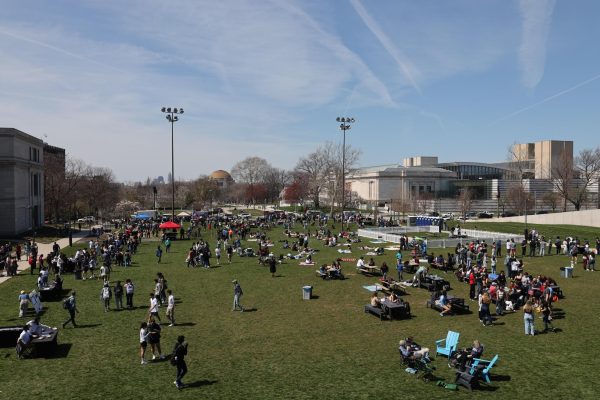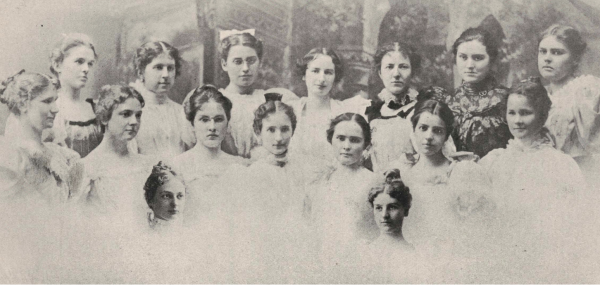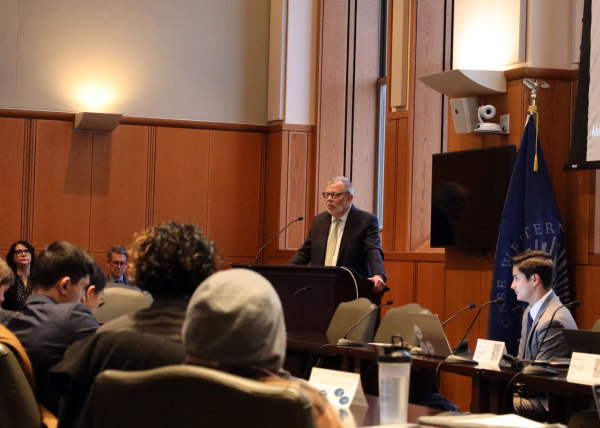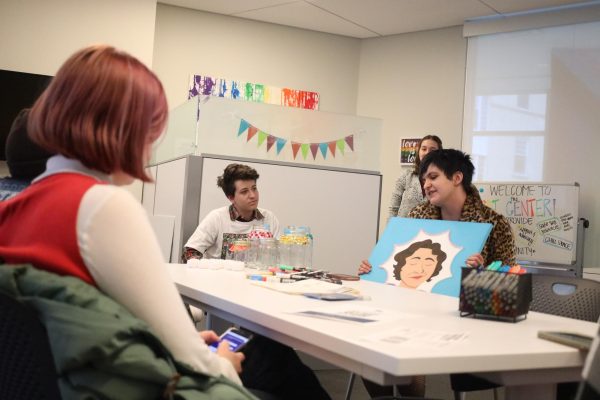USG resolution calls for CWRU to become a sanctuary campus
The resolution stated specific activities against students that CWRU should resist aiding in
March 24, 2017
The Undergraduate Student Government took a large step towards making Case Western Reserve University a sanctuary campus.
On March 7, Tuesday, the USG General Assembly (GA) took a strong stance against a surge of national anti-immigration policy by passing Resolution R. 26-04, which calls for the CWRU to resist giving up information of and actively protect students at risk. The resolution passed just two nay votes shy of unanimity and calls for both symbolic and material actions to protect immigrant and international students on campus.
In a statement, the resolution’s co-author and a USG representative Andrew Thompson described an attitude of solidarity motivating himself and others to take action.
“For me, the sanctuary campus resolution was an opportunity to do my part to support the immigrant and Muslim community at [CWRU] and to do my job as a Representative to advocate for their interests,” said Thompson.
Thompson composed the bill with Timothy Nicholas, the vice president of the USG Public Relations Committee after communicating with Radical Student Union (RSU). RSU members Jaimee Miller and Evan Adams represented RSU at last Tuesday’s GA meeting. The group was identified as a co-sponsor of the resolution.
The resolution calls for CWRU to declare itself a sanctuary campus as defined as a university that “actively resists the release of student information as it pertains to immigration status and participation in deportation and detention activities, as well as promotes an intentionally safe and welcoming environment for immigrant community members.”
Included in the resolution are demands for the administration to provide housing for students affected by the travel ban and make improvements to the bias reporting system including allowing for feedback. The resolution also calls for proactive measures to throw the university’s economic weight behind protecting its undocumented students.
Tommy Pierre, one of the two representatives who voted against the resolution, hedged his opposition during the General Assembly to the resolution in the belief that the USG should not act politically.
Thompson noted that “Instead of acting slowly and cautiously, USG stepped in and didn’t pull any punches, and I’m proud to be a part of that.”
The resolution requests that the administration both “resist all requests for students’ personal information as it pertains to immigration status” as well as “resist participation in all deportation and detention activities.” The majority of the debate hinged on the inclusion of the word “resist.”
Nicholas also stressed that no request in the resolution is unlawful. “I’d also like to point out that nothing asked in the petition was unlawful, as some have misunderstood. The resolution calls on the administration to take a strong stance in support of undocumented students, but not an unlawful one.”
The term “sanctuary campus” is similarly interpretable. Other universities such as Columbia University have developed a policy of withholding the information of undocumented stories, even in the case where the law would compel disclosure to authorities. However, most sanctuary campuses have pursued a mix of different anti-discrimination policies to define the label.
CWRU remains critical to President Trump’s travel ban. The administration released a statement two days after the first travel ban signed on Jan. 27, voicing its opposition. In the same light, the Faculty Senate on Jan. 31 condemned the executive order and “all future orders of similar nature.”
“I was elated that the Resolution received such tremendous support in GA,” commented Nicolas, “I think it stands as a tremendous testament to USG’s commitment to advocating for all students on campus, including those who are undocumented.”
















